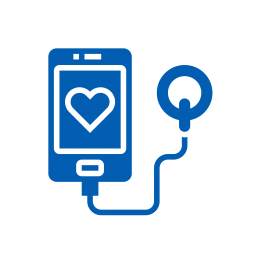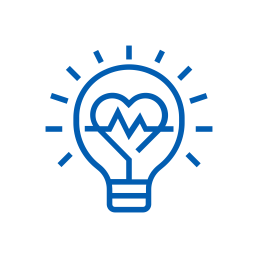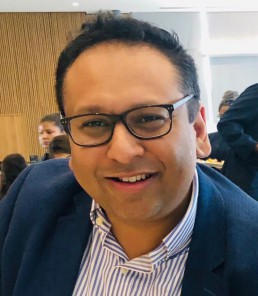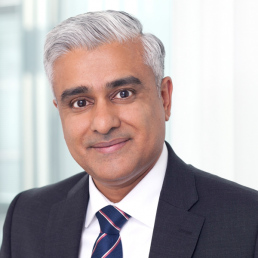Curzon Healthcare Lead Chetan Trivedi in conversation with Dr Rameen Shakur MD PhD (Cantab), Massachusetts Institute of Technology, Boston. We explore precision medicine, the importance of a patient centric approach to data and how medical technology is improving healthcare accessibility.
Rameen is the founder of Cambridge Heartwear and the Jansen Fellow for Cardiology and precision medicine at Massachusetts Institute of Technology (MIT). This interview was not sponsored. All views are Dr Rameen Shakur’s and not that of MIT.
Watch a highlight of our conversation below

Precision medicine and technology
Precision medicine refers to the tailoring of medical treatment to the individual characteristics of each patient.
Precision medicine does not mean the creation of drugs or medical devices that are unique to a patient, but rather the ability to sub-classify individuals into populations that differ in their susceptibility to a particular disease. And for that to occur, Rameen argues we need “not just the therapeutic arm, the diagnostic arm, but also the analytical arm to all intermingle in one.”
Rameen is the founder of Cambridge Heartwear, a medical technology and AI device manufacturer. Through novel engineering, Rameen and his colleagues at University of Cambridge fused diagnostics, and real-time delivery of data and analytics. Cambridge Heartwear aims to reduce the impact of strokes by detecting irregular heart rhythms in real-time through a pairing monitoring device and artificial intelligence algorithms. This real-time wearable ECG (electrocardiogram) device has cut the diagnosis and treatment process down from three weeks to days. Rameen explains it is also a means to measure our physiology in more granularity.
Part of Cambridge Heartwear’s goal is more integrated healthcare across primary, secondary and tertiary care. Rameen explains “once you deal with that whole process of how to manage a system to amalgamate all of those together, then you make a real inroad into what we want to call precision medicine.”
Similar to many technology companies, such as HP and Apple, Rameen built the first prototype in a shed in his back garden.

Patient centric design
What makes Cambridge Heartwear disruptive is the focus on the patient. Throughout the design process, Rameen is “very patient centric”.
This carries through to the availability and ownership of data. “It’s patient centric because if we want to get to a view of precision medicine, you have to give access to people for that data. The point is it is their data. It is their own right to actually have that data, access that data and do as they please with that data.” From the patient perspective it is a means for them to obtain specific data related to the cardiovascular system for the first time, namely the whole electricity of the heart when they’re moving around. Consequently, access to this data enables people to have an informed conversation with physicians on treatment modalities.
This focus on the patient not only applies to data but the design of the wearable itself “We wanted a wearable that would be ergonomic”. The design encompassed:
- Real-time data and analytics transmission from patient to physician across the world
- Patient experience – “we wanted a system where you can go about your daily business”
Historically many medical technology companies have adopted a male-centric approach to data and design. Rameen was mindful of gender bias in his medical technology design, stating
“the whole design was done for the anatomical differences between males and females.”
Accessibility for all is at the heart of what Rameen’s trying to achieve. He believes that coronavirus has affected healthcare by firstly highlighting the health inequalities that exist in society and secondly adopting technology to break down those barriers. “who has access has power is no longer the statement that we want to hear”. The COVID-19 pandemic has also highlighted the important role of technology to deliver information from patients’ homes to hospitals and physicians.

The future of precision medicine
We ask Dr Rameen what precision medicine could look like in the next 30 years.
“Precision medicine I hope will garner a lot of technology, innovation and discovery. In our lab, for example, we are teasing out for the first time methodologies for risk stratification for patients who may have had the genetic test.
We are getting more and more nuanced in the way we collect data. Previously, for example when we talked about disease associations, we referred to a particular subpopulation, a particular racial population… For a complete picture, one needs to know and have a whole profile of different technologies that are applicable across the board, across society. I believe what we need to do is to bring that back to society and say, let’s talk about it in the context of the population of our global population.”
I believe we will likely see more integration of digital technology with the biotech fields… I hope to see more of this sort of collaboration where novel engineering comes head to head with medical technology processes, whereby the actual information is now being stored in biological systems, having a discourse with physicians at a much more accessible point. And I think this concept which has started to happen
“It’s a very exciting time within the next five to 10 years, we’re seeing a lots of big changes”.
The concepts of portability and real time data are “something that we are very proud to work on and something that’s also of interest to us as we move to our next phase of humanity into space.” Indeed, the emergence of space travel tourism launches an opportunity to observe medical data and physiology outside of the earth’s atmosphere.
But one thing’s for certain, the aim of medical technology is not to replace humans.
“I think one of the key points about technology is we have to get away from just being a tech company. You are a human company, which is dealing with humans and for the survival of patients, we need to have all in our armoury. So I make no apology to say that we would never want to replace the physician, but rather to make that whole process a lot easier and less journey as for all involved.”
An important time for innovation in the UK
Rameen is proud of the work that UK engineers and manufacturers are doing right now. He believes that as a country
“we are very strong in artificial intelligence. We may not have previously been very vocal about that, but the proof is in the pudding. And I’m glad to say a lot of people are having the puddings!”
We can help you to improve patient outcomes with digital strategy, transformation and patient experience.
In conversation with

Dr Rameen Shakur MD PhD (Cantab), Massachusetts Institute of Technology, Founder of Cambridge Heartwear




